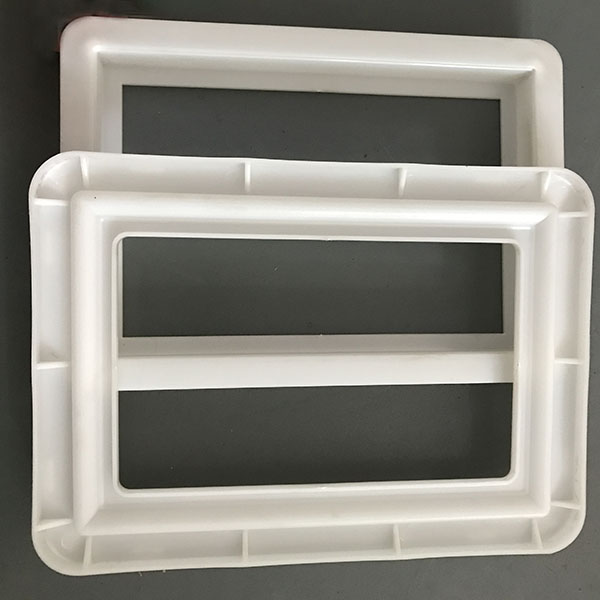Jul . 26, 2024 06:09 Back to list
Certification Process for Diesel Spare Parts in Compliance with CE Standards and Regulations
Understanding CE Certification for Diesel Spare Parts
In the context of the modern automotive and machinery sectors, the importance of ensuring the quality and safety of spare parts cannot be overstated. For diesel engines particularly, the performance, longevity, and safety heavily depend on the components used. This is where CE certification plays a crucial role as a mark of quality assurance and compliance with European standards.
What is CE Certification?
CE marking, which stands for “Conformité Européenne” or European Conformity, is a certification that indicates that a product meets the essential requirements of relevant European health, safety, and environmental protection legislation. In essence, it is a mandatory conformity mark for products sold within the European Economic Area (EEA). For diesel spare parts, obtaining CE certification signifies that the product has undergone rigorous testing and evaluation to ensure its safety, reliability, and performance standards.
Importance of CE Certification for Diesel Spare Parts
1. Safety Assurance Diesel engines are extensively used in various heavy-duty applications, including transportation, construction, and agriculture. The components of these engines must not only function optimally but also withstand severe operational conditions. CE certification assures that the spare parts are safe to use and will not pose any hazards during operation.
2. Quality Guarantee The process of achieving CE certification includes thorough assessments and tests which means that certified parts typically offer better quality and performance. This can lead to reduced downtime, fewer unexpected repairs, and overall enhanced productivity for businesses relying on diesel engines.
3. Regulatory Compliance For businesses operating within Europe or exporting to European markets, compliance with CE marking regulations is essential. Non-compliance can lead to legal repercussions, fines, and a ban on selling products in the European market. Therefore, obtaining CE certification is not just beneficial but often mandatory for companies wishing to remain competitive.
ce certification diesel spare parts

4. Consumer Confidence The CE mark is a recognized symbol of quality and safety among consumers and businesses alike. It serves as a reassurance to customers that they are purchasing high-quality products. This can greatly influence purchasing decisions, leading to increased sales and customer loyalty.
5. Market Expansion Obtaining CE certification can open up new markets for manufacturers. Many countries and regions require CE marking for imported products, and having this certification can ease entry into those markets and provide a competitive edge.
The Certification Process
Achieving CE certification for diesel spare parts involves several key steps. Initially, manufacturers must clearly identify the applicable directives and standards relevant to their products. Following this, they must conduct a comprehensive risk assessment, followed by testing the parts to ensure compliance with established standards.
After testing, if the parts meet all requirements, manufacturers can compile technical documentation and apply the CE mark to their products. It is essential to keep in mind that maintaining compliance is an ongoing process, and regular audits may be required to ensure that standards are consistently met.
Conclusion
CE certification is more than just a regulatory hurdle; it offers a pathway to ensuring that diesel spare parts meet high standards of quality, safety, and performance. For manufacturers, this certification can enhance marketability, boost consumer confidence, and facilitate access to a wider array of markets. As the demand for reliable diesel engine components continues to grow, obtaining CE certification will remain a vital step for manufacturers aiming to establish themselves as leaders in the industry. By prioritizing quality and compliance, the industry can work towards safer and more efficient diesel-powered machinery, benefiting both producers and consumers alike.
-
PLAB-6 A B Two Compounds Filter End Cap Gluing Machine-Hebei Filter Man|Precision Gluing,Automated Production
NewsAug.18,2025
-
PLAB-6 A B Two Compounds Filter End Cap Gluing Machine - Hebei Filter Man Automotive Parts Trading Co., Ltd | Adjustable Gluing Parameters, Automated Precision
NewsAug.18,2025
-
PLAB-6 A/B Two Compounds Filter End Cap Gluing Machine-Hebei Filter Man|Precision Engineering&Efficiency
NewsAug.18,2025
-
Active Carbon Air Filter for Purifier: Superior Air Quality & Odor Removal
NewsAug.18,2025
-
PLAB-6 Gluing Machine-Hebei Filter Man|Precision Gluing,Automated Filtering
NewsAug.17,2025
-
PLAB-6 A B Two Compounds Filter End Cap Gluing Machine - Hebei Filter Man
NewsAug.17,2025
